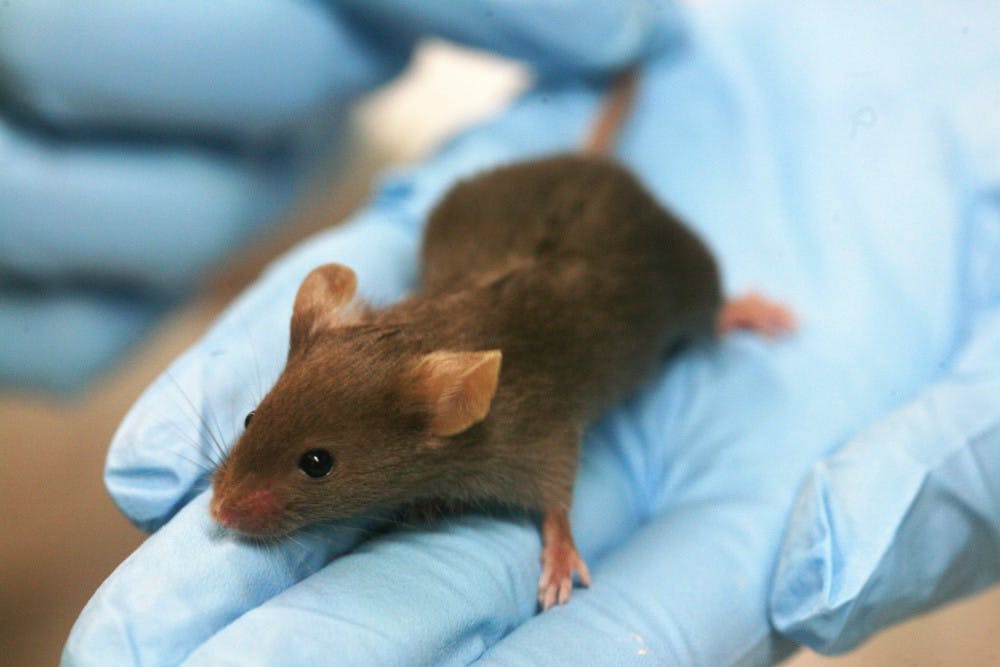If you have ever considered yourself a germaphobe and shuddered at the thought of bacteria surrounding you, recent scientific research may shock you. Did you know that the average human can have as much as five pounds of bacteria living on and inside of them?
These tiny little creatures are known as the human microbiome, and they may influence your health in a major way. The microbiome has been linked to everything from Crohn’s disease to allergies, asthma, obesity, diabetes and even mood disorders like anxiety and depression.
We do not yet know if there is a causal link between the microbiome and any of these conditions, but evidence strongly suggests that the microbiome is a factor that heavily influences overall health, especially with respect to obesity.
In fact many studies have been done into the relationship of the microbiome and obesity.
In these studies, scientists transplanted the gut microbiomes of humans into mice that had been raised in a completely germ-free environment where they did not develop a microbiome.
What they found was that when the mice got microbiomes from relatively lean subjects, the mice also stayed lean. When the mice received microbiomes from obese patients, the mice also gained weight.
In another study mice were given the gut microbiota of children with Kwashiorkor, a type of severe acute malnutrition. As a result the mice actually lost 30 percent of their body weights.
These issues may even start from birth. A study released by JAMA Pediatrics found that when children were born by cesarean section rather than a vaginal birth, they were 15 percent more likely to be obese in early adulthood.
The microbiome clearly has profound effects on the human body. However not everything about it is predetermined, and there are ways the microbiome can be of use.
For example researchers at the University of Copenhagen recently found that your stool, which is also known as your gut microbiota, can tell you whether you can lose weight.
In the Department of Nutrition, Exercise, and Sports at the university, a team of researchers headed by Assistant Professor Mads Fiil Hjorth tested the effects of rations of two specific bacteria in the gut and the effect of certain diets on weight loss.
In the study the participants were divided into two groups, one of which ate a New Nordic Diet (NND) high in fruits, vegetables, fiber and whole grains. The other group ate the Average Danish Diet (ADD). Those on the NND lost an average of 3.5 kg whereas those on the ADD lost 1.7 kg.
The biggest difference comes when taking into account how their microbiota affected these numbers. The researchers were looking at two types of bacteria, Prevotella bacteria (Pb) and Bacteroides bacteria (Bb).
When participants had a high ratio of Pb to Bb, they lost an average of 3.5 kg more on the NND than the AAD. When participants had a low ratio of Pb to Bb, they lost about the same amount of weight, whether they were on the NND orthe AAD.
One of the most important outcomes of this study is that it shows every person is different. One diet might not suit every person or cause a dramatic weight loss.
The data shows that how one’s microbiota develops can yield results different from other people’s. No one diet can guarantee results.
Overall your microbiome can influence many things in your life, from your mood to how often you get bitten by mosquitos. It can even have a large impact on health, obesity and even type two diabetes. There are still many things we do not know about the gut
microbiome.
Studies are still being done, mainly to find out the cause and effect relationship between various diseases and our microbiome.
One of the main projects currently being conducted is the Human Microbiome Project. The project is mapping the various kinds of gut, skin and oral bacteria to create a giant map of our human microbiome.
Eventually science may be able to diagnose disease early on based on certain proportions of bacteria in your gut.





